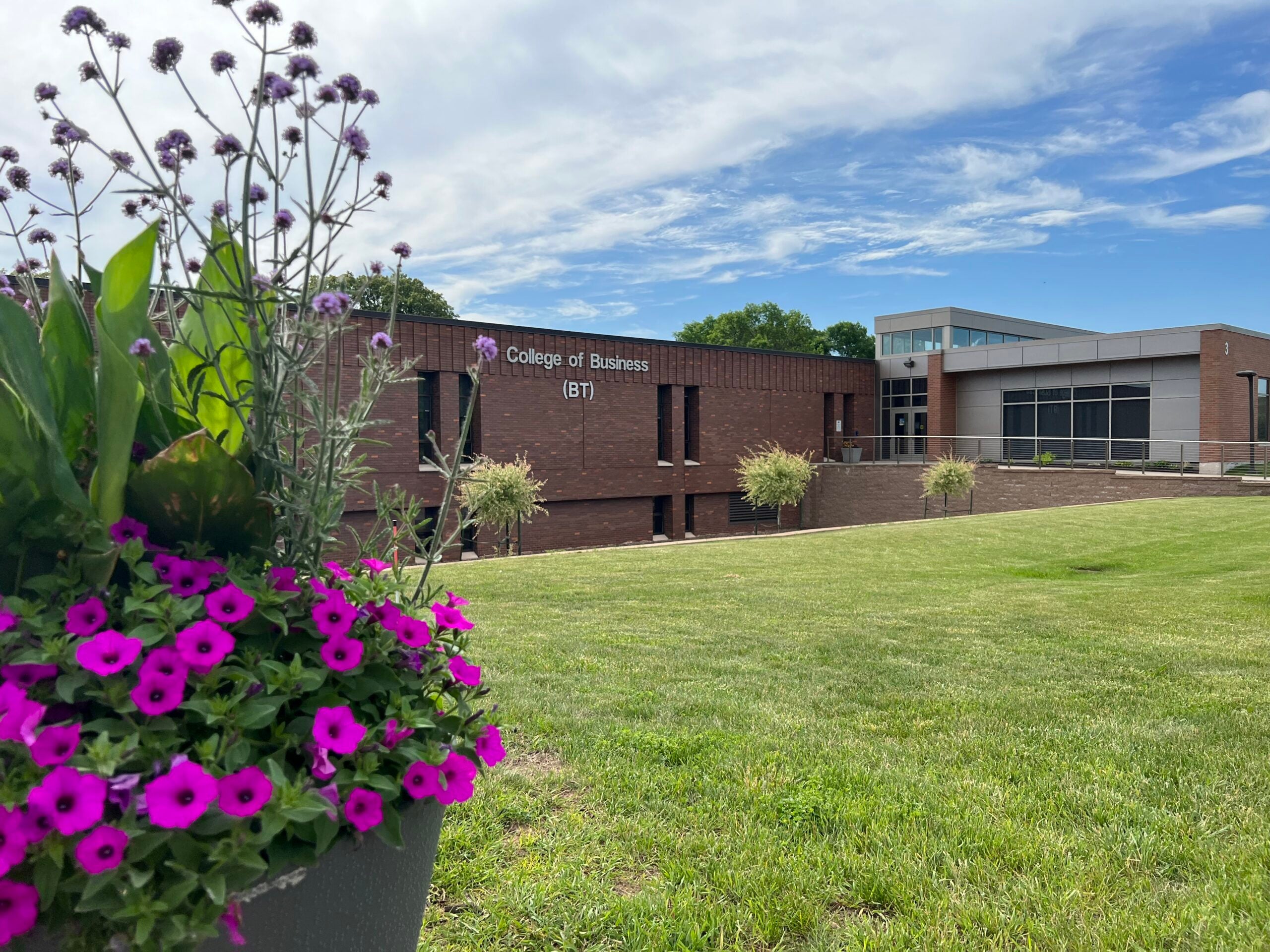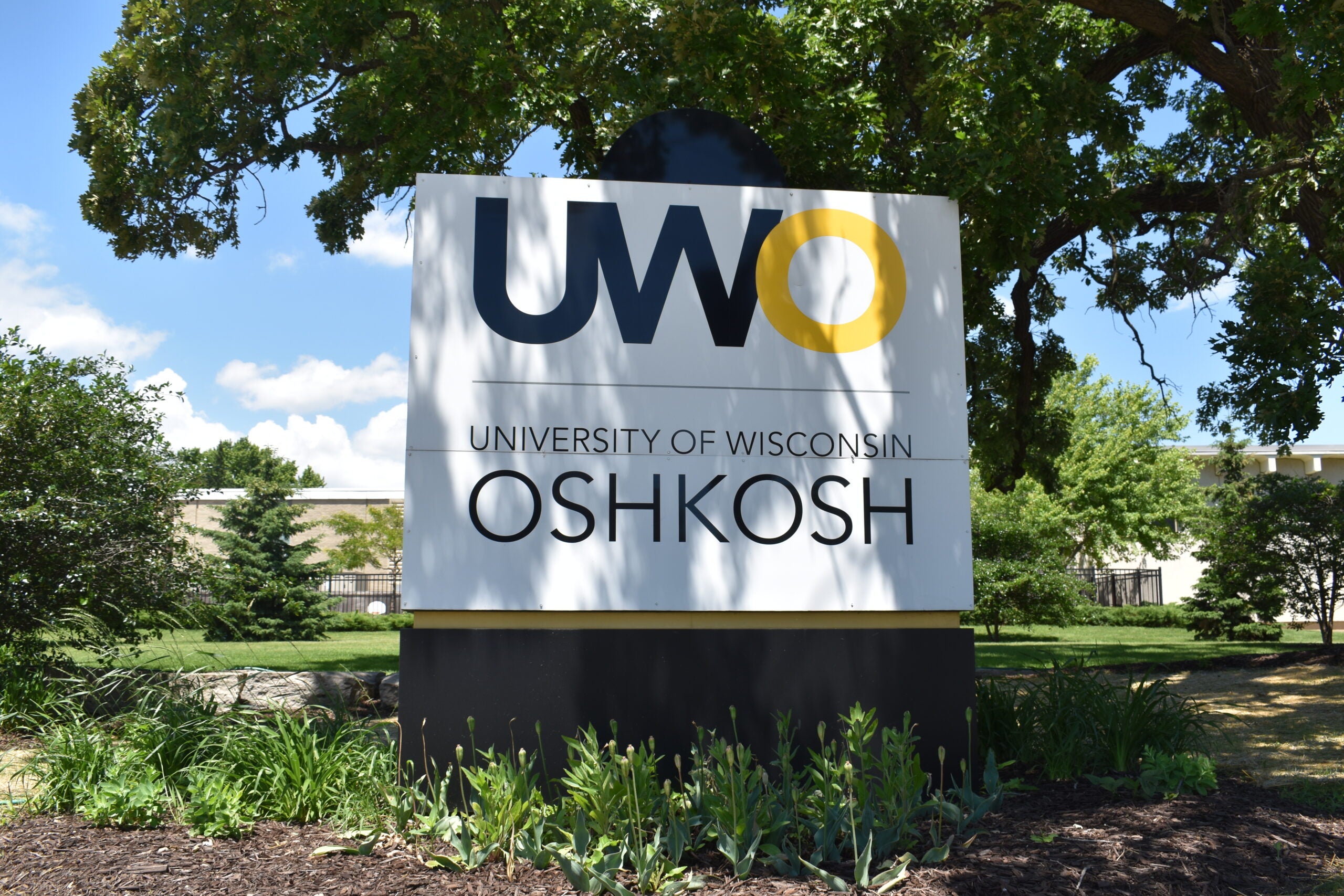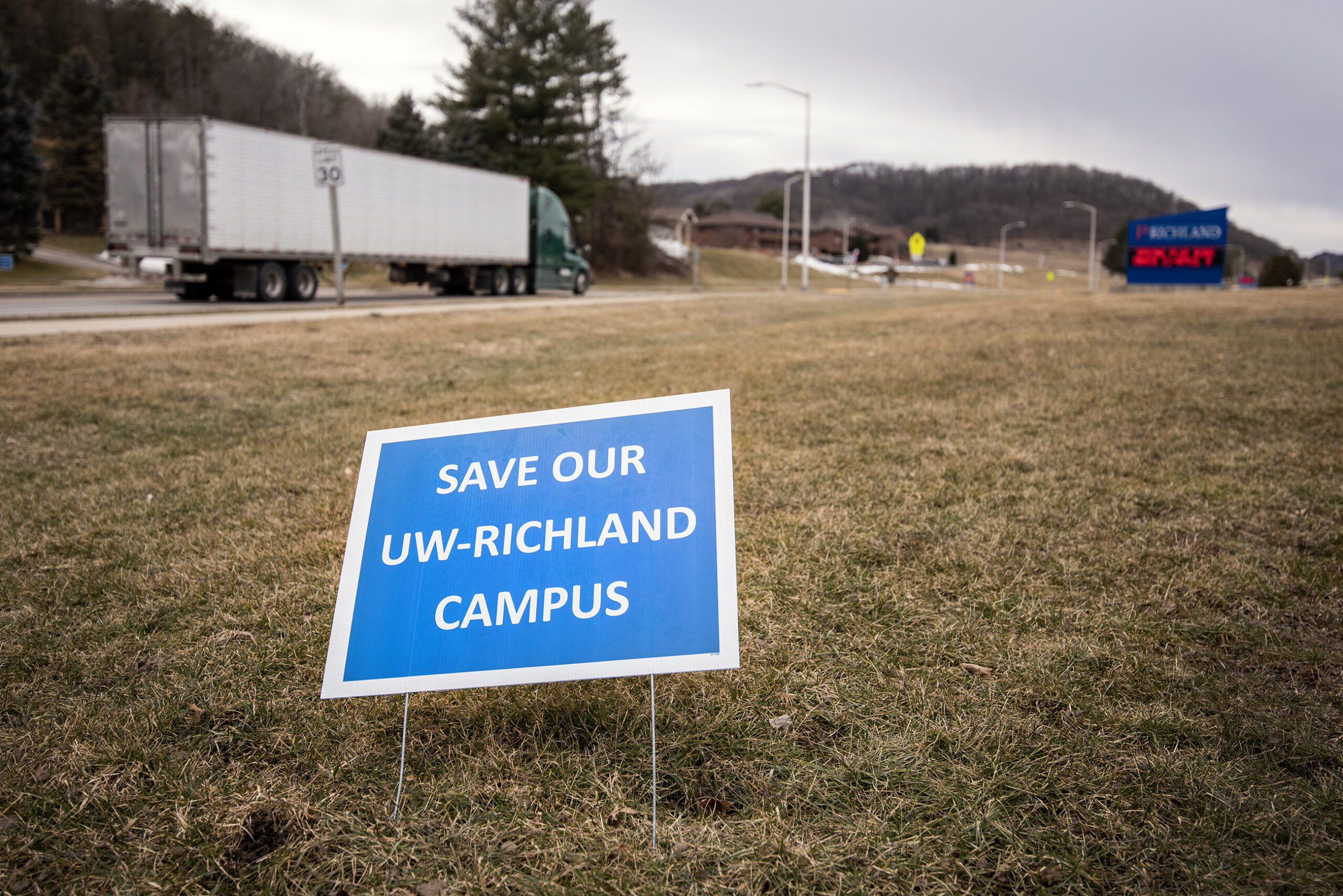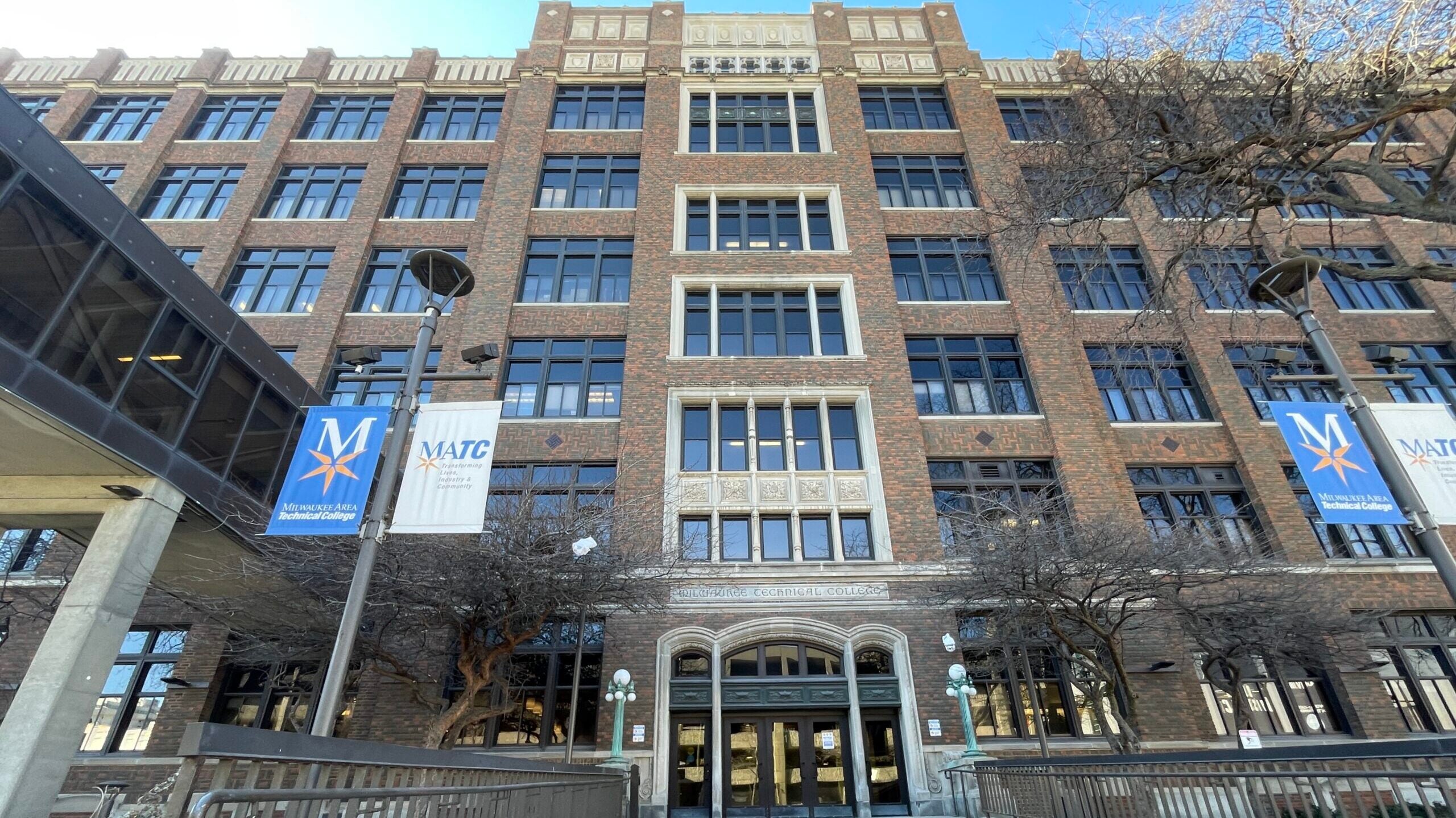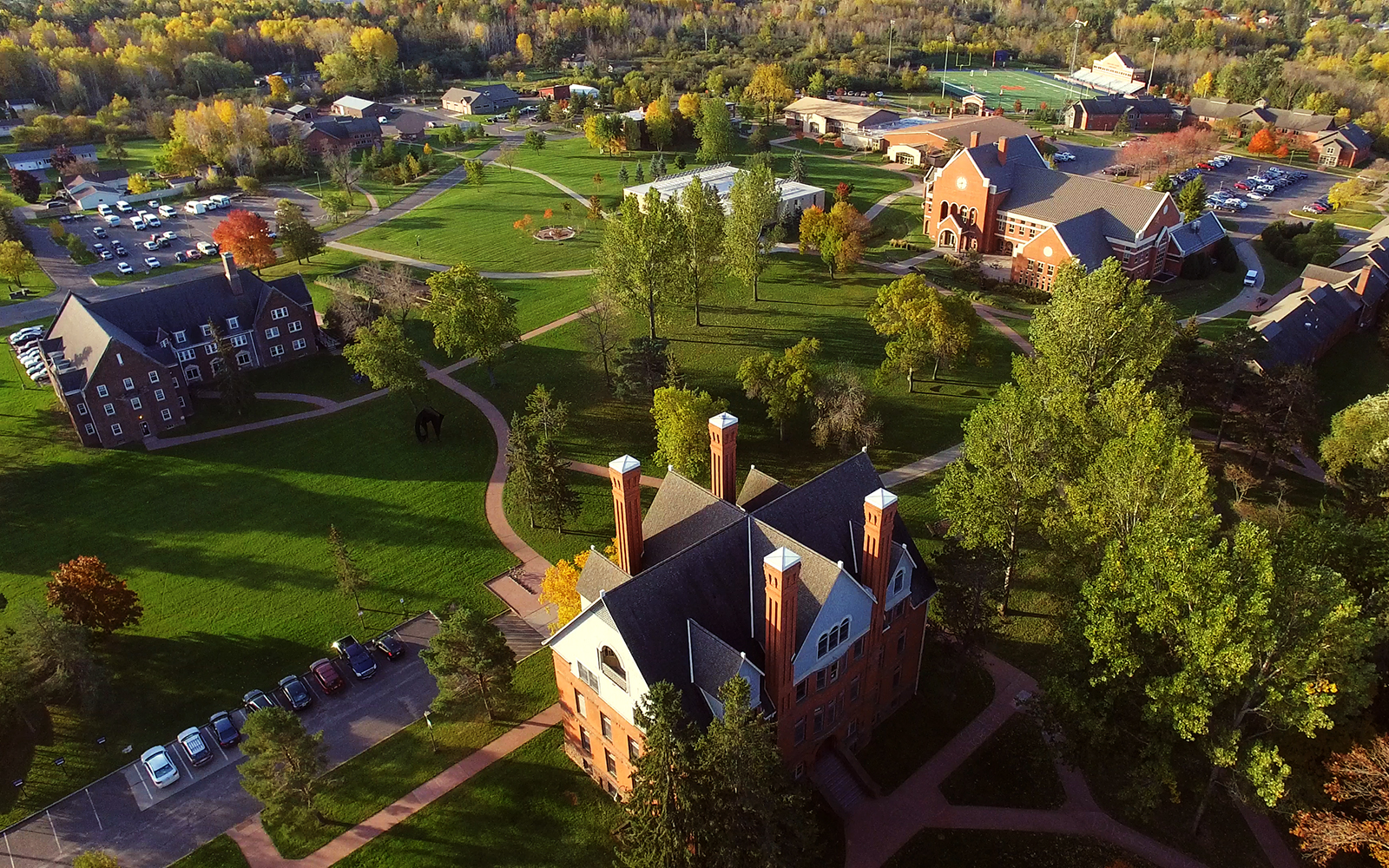A private liberal arts college and a state technical college are building on their existing partnership to expand access to bachelor’s and master’s degree programs.
On Monday, Northeast Wisconsin Technical College, or NWTC, and Lakeland University announced that Lakeland would relocate its Green Bay center to the tech school’s main campus. Lakeland will start offering classes at the NWTC campus this summer.
Lakeland has six centers around the state serving undergraduate and graduate students, in addition to its main residential campus in Sheboygan County. The center in Green Bay opened in the 1980s. The university also has a campus in Tokyo, Japan.
Stay informed on the latest news
Sign up for WPR’s email newsletter.
At the Green Bay center, Lakeland will offer more than a dozen bachelor’s programs and four master’s programs that will be available online, in-person or in a hybrid format. A few of the bachelor’s programs include accounting, business administration and organizational leadership & development.
Officials at both institutions said they already partnered on transfer programs, but having Lakeland in-house at NWTC builds on those efforts.
Jonathan Feld, senior vice president for enrollment management at Lakeland, said the university will have an office presence and dedicated classroom at NWTC.
“The university is putting admissions staff at the tech college location (and) putting advising staff at the Tech College location, so that if a student wants to have an in person conversation, university staff are there five days a week,” he said. “They are there from morning until evening. They are there to support the student through every step of the process.”
The partnership also allows NWTC grads to enroll at Lakeland as juniors to receive a 20 percent discount on tuition for undergraduate courses.
Kathryn Rogalski, vice president of Learning at NWTC, said the college’s partnership with Lakeland helps ensure that students getting an associate’s degree at the tech school have an affordable option to complete a bachelor’s degree program.
She said the majority of students at NWTC who participate in the partnership with Lakeland stay in the community after getting their degrees.
“Having a place right on our campus is really a great opportunity for students to have full transfer opportunities, finish a degree locally and then continue to serve in our local region and our workforce,” Rogalski said.
The expanded partnership comes as tech colleges and four-year universities continue to ramp up collaboration efforts across the state.
Last year, Fox Valley Technical College signed transfer agreements with the University of Wisconsin-Oshkosh and UW-Green Bay. In January, UW-Milwaukee announced it signed agreements with four regional tech colleges, guaranteeing admission for their graduates.
Similar to its partnership with NWTC, Lakeland University President Beth Borgen said the university has partnered with Fox Valley Tech and Waukesha Technical College as well.
Borgen said those partnerships make the transfer process easier for students by allowing them to continue their education at a facility they’re already familiar with.
“From a student perspective, it’s really centered around the student and removing all barriers to make it easy and seamless to just continue on in their degree,” she said.
In addition to the partnership with Lakeland, Rogalski with NWTC said her college has regular meetings with UW-Green Bay to map out transfer pathways and build relationships.
“That workforce in our area needs not only associate degree graduates, but also bachelor degree level graduates,” she said. “We feel that it’s our role, not just to make sure that students have the opportunity to transfer, but that they transfer and that they complete a bachelor’s degree.”
These collaborations come as higher education institutions across the state face funding and enrollment challenges.
Multiple universities in Wisconsin have announced staff reductions over the last year, from public universities like UW-Oshkosh and UW-Green Bay to private colleges like Concordia University and St. Norbert College. And several Universities of Wisconsin System schools have announced plans to stop in-person classes at their two-year branch campuses.
Borgen said collaboration between four-year universities and tech colleges — and between educational institutions and employers — is going to be especially important to the future of higher education.
“These partnerships and our employer partnerships allow us to be really nimble and adapt our curriculum and our accessibility to make sure it works for the employers as well,” she said.
Wisconsin Public Radio, © Copyright 2025, Board of Regents of the University of Wisconsin System and Wisconsin Educational Communications Board.
